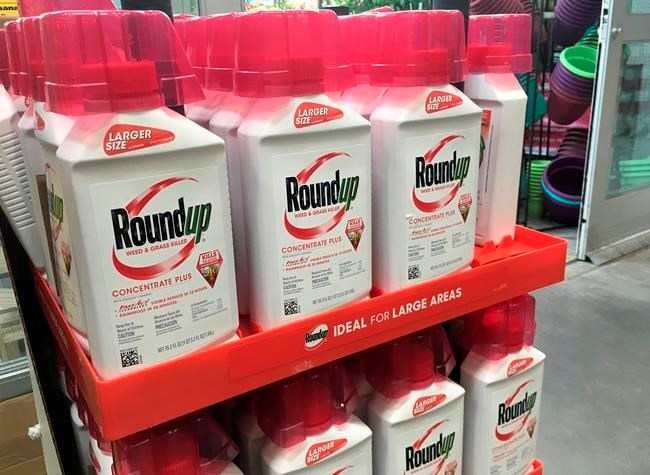BERLIN — Bayer will pay up to $10.9 billion to settle litigation over the subsidiary Monsanto’s weedkiller Roundup, which has faced thousands of lawsuits over claims it causes cancer, the German-based company said Wednesday.
Bayer said it was also paying up $1.22 billion to settle two additional areas of intense litigation, one involving PCB in water, and one involving dicamba, another weedkiller.
The company said the Roundup settlement involves about 125,000 filed and unfiled claims. Under the agreement, Bayer will make a payment of $8.8 billion to $9.6 billion to resolve current litigation, and $1.25 billion to address potential future litigation.
Any future settlements are subject to approval by Judge Vince Chhabria of the U.S. District Court for the Northern District of California, the company said.
“First and foremost, the Roundup settlement is the right action at the right time for Bayer to bring a long period of uncertainty to an end,” Bayer CEO Werner Baumann said in a statement. “It resolves most current claims and puts in place a clear mechanism to manage risks of potential future litigation. It is financially reasonable when viewed against the significant financial risks of continued, multi-year litigation and the related impacts to our reputation and to our business.”
Monsanto developed glyphosate — a key ingredient in Roundup — in the 1970s. The weedkiller has been sold in more than 160 countries and widely used in the U.S. The company has long maintained that it is safe. Bayer said last year that all government regulators that have looked at the issue have rejected a link between cancer and glyphosate.
But the herbicide came under increasing scrutiny after the France-based International Agency for Research on Cancer, which is part of the World Health Organization, classified it as a “probable human carcinogen” in 2015.
Lawsuits against Monsanto followed. Monsanto has attacked the international research agency’s opinion as an outlier. The U.S. Environmental Protection Agency says glyphosate is safe for people when used in accordance with label directions.
Bayer purchased St. Louis-based Monsanto in 2018.
In August, a California jury ordered Monsanto to pay a combined $2.055 billion to a couple claiming that Roundup Ready caused their cancers. It was the third such courtroom loss for Monsanto in California since August.
Bayer said Wednesday that the appeals process will continue for those three cases, which are not covered by the settlement.
Bayer said it would also pay up to $400 million to settle cases claiming that the weedkiller dicamba drifted onto plants that weren’t bred to resist it, killing them. Claimants will be required to provide proof of damage to crop yields and evidence that it was due to dicamba, Bayer said.
The company said it expects contributions from co-defendant BASF toward the dicamba settlement.
A further payment of up to $820 million will be made to settle “most” claims for exposure to PCB, a highly carcinogenic chemical that Monsanto produced until 1977 and that has been found in U.S. waters.
Bayer said it would start making payments this year and these would be financed from existing liquidity, future income, proceeds from the sale of its animal health business and the issuance of additional bonds.
___
This version has been updated to remove an incorrect reference that the settlement covers only 75% of cases, and to show that only future settlements are subject to a judge’s approval.
The Associated Press




